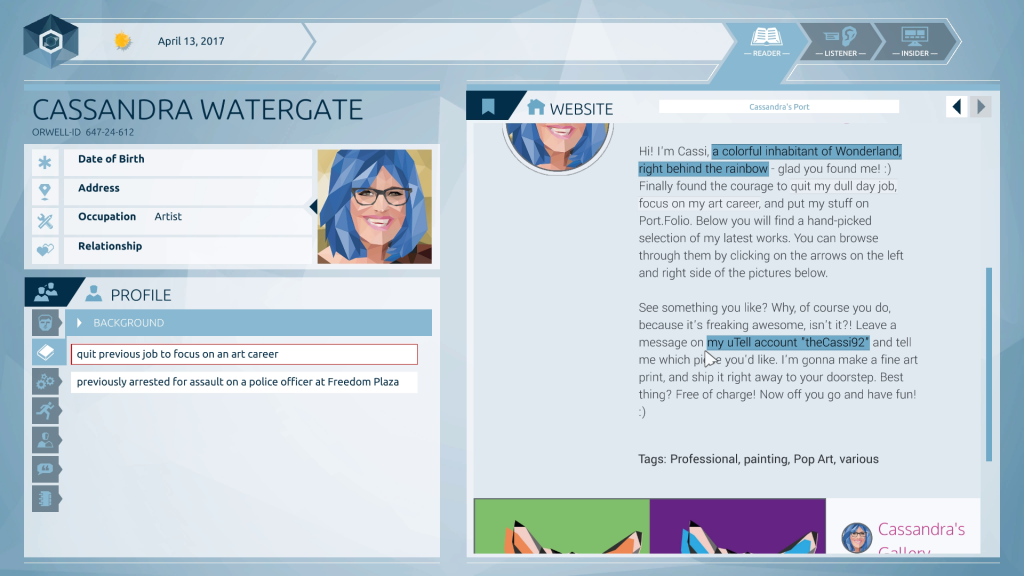Orwell – Simulating Surveillance
During my ongoing literature review I often discover interesting facts about things I’ve never thought about. Sometimes I can connect these facts with my own observations: The result is mostly a completely new idea why things are as they are. Maybe these ideas are new to you, too. Therefore I’ll share my new science based knowledge with you!
This week: This time, I think about the effects of a simulated surveillance. It is very interesting to reveal dark secrets about fictive persons but it als raises a question about data security.
The internet is a great and important tool these days. Users can retrieve information about a certain fact, buy things from all around the world, enjoy fascinating movies as well as photographs, and connect with other people. However, every time we upload new information to the internet, we leave behind traces revealing our personal life. In addition, some privacy settings might get changed by service providers or a bug occurs in the platform. Suddenly, the entire world has access to previously hidden data.
One merely has to follow a person’s social media profiles and perform some targeted search requests using google to find these information. Then, by connecting the dots, it is possible to create a comprehensible profile when enough data was uploaded. While this rarely is done with harmful intentions, it can also reveal information that should not be publicily available.

Orwell
Another dangerous scenario is when a government uses the internet to implement a surveillance of the nation’s citizens. In such a case, some missleading statements on a social media platform might already lead to wrong assumptions and even to further investigations. Recently, I started playing Orwell which discusses this problem.
The player is put into the role of an investigator who is searching on the internet for clues and information about a fictive nation’s citizens after a potential terror attack. Clicking through the fictive websites, invading a user’s private chats and uploading information to the „Orwell“ database gave me a pretty bad feeling. After uploading them, they were used to generate a comprehensive profile and were interpreted in order to find connections to additional information sources.
Can I be traced in a similar way? Do intelligence agencies‘ databases already feature a profile about myself? Although I just played the first 30 minutes of Orwell, it made me realize how much we reveal about ourselves by utilizing the internet.
In the end, Orwell is a very interesting game that challenges a player with ethical problems thus training ethical decision making. Despite these ethical questions, the game still immerses a player and evokes a certain desire to continue the surveillance. One cannot deny a dark interest in finding out more about the fictive citizens.